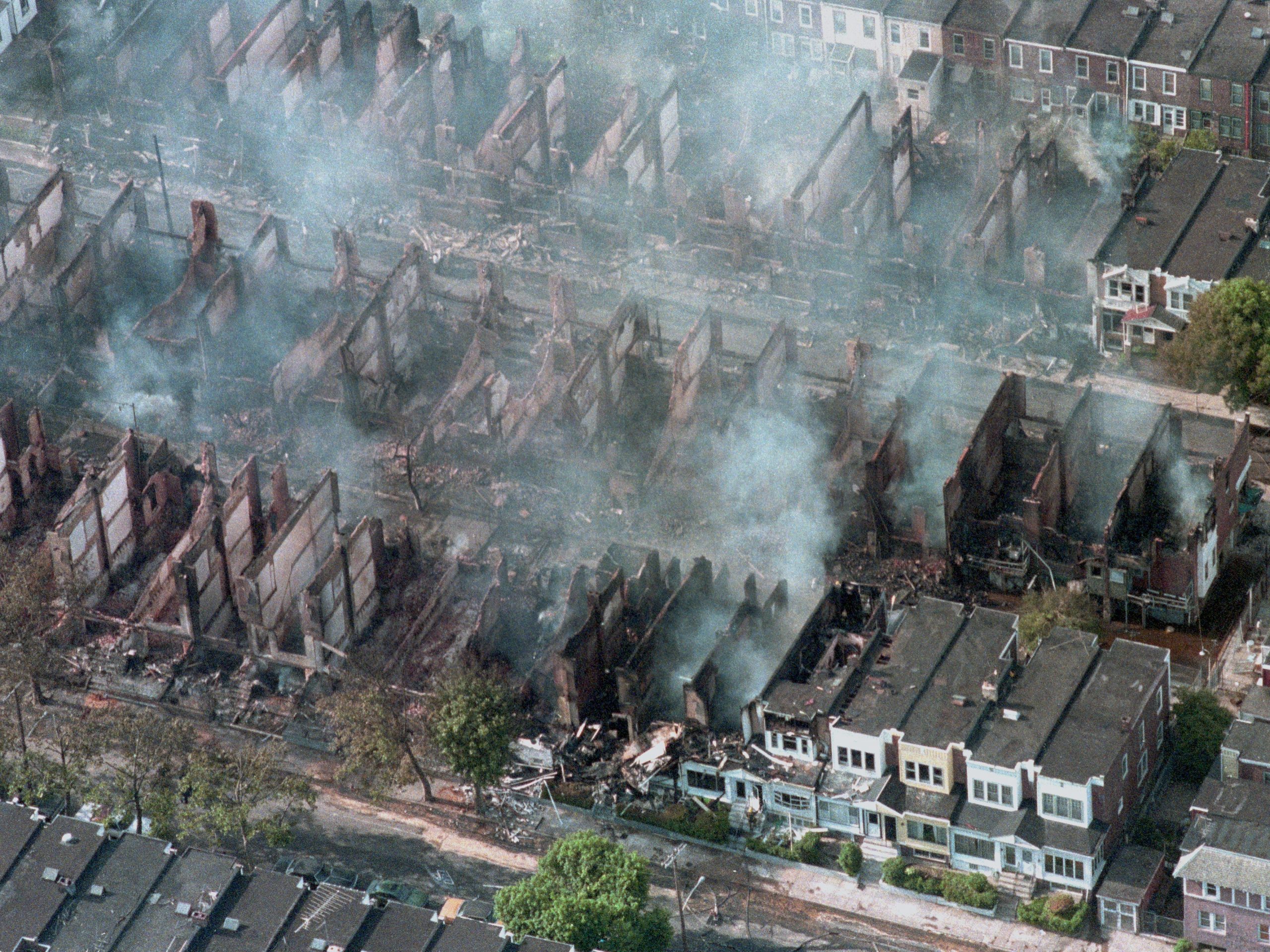
Bettmann/Getty Images
- Philadelphia City Council voted on Thursday to formally apologize for their decision to approve a bombing, which left 11 people dead, including five children, and burned down 61 homes in 1985.
- On May 13, 1985, police dropped an explosive device on the roof of the compound of MOVE, a Black radical group, as officers tried to evict them, according to The Philadelphia Inquirer.
- The blaze was left to rage. There were 11 deaths, including five children aged seven to 13, and 61 homes destroyed in the largely black neighborhood, The Guardian reported.
- In the resolution, Cllr Gauthier said: “We can draw a straight line from the unresolved pain and trauma of that day to Walter Wallace Jr’s earlier this week in the very same neighborhood.”
- Visit Business Insider’s homepage for more stories.
Philadelphia City Council voted to formally apologize for their decision to approve a bombing, which left 11 people dead, including five children, and burned down 61 homes in 1985.
On May 13, police dropped an explosive device on the roof of 6621 Ossage Avenue in West Philadelphia after a daylong confrontation with the Black radical group, MOVE, as officers tried to evict them from their compound, The Philadelphia Inquirer reported.
The bomb then sparked a blaze that was left to rage by authorities until there were 11 deaths, including those of five children aged seven to 13, and 61 homes destroyed in the largely black neighborhood, according to The Guardian.
MOVE was founded in 1972 by Vincent Leaphart, a West Philadelphia native and Korean War veteran who took the name John Africa to demonstrate his reverence for the continent.
The group’s ideology and aims were outlined in a document entitled ‘The Guidlines.’ It combined black revolutionary ideals with environmental and animal rights, Vox reported.
They had a mixed relationship with the local community but frequently had run-ins with the police. A police officer was killed in 1978. Nine MOVE members were controversially given life sentences, Vox added.
Gregore J. Sambor, the Police Commissioner who directed the bombing, resigned in November of that year. A grand jury in 1988 cleared then-Mayor W. Wilson Goode and other top city officials of criminal liability for death and destruction resulting from the operation, the New York Times reported.
However, W. Wilson Goode wrote in The Guardian: "The event will remain in my conscience for the rest of my life," and called on the city to issue a formal apology.
The vote was introduced by Jamie Gauthier, a councillor who grew up near the Cobbs Creek neighborhood where the attack occurred and whose district also includes it, The New York Times added.
She also called for an annual remembrance on May 13 and had a draft resolution prepared before this year's 35th anniversary but it was put on hold due to COVID-19.
Cllr Gauthier tweeted on Thursday: "My MOVE Bombing resolution passed unanimously today. Thank you to all my Council colleagues for your support. This resolution serves as a recognition of the pain and trauma that these events have brought upon the Cobbs Creek community, and Black people in our city as a whole."
—Councilmember Jamie Gauthier (@CouncilmemberJG) November 12, 2020
In the resolution also posted on Twitter, she said: "We can draw a straight line from the unresolved pain and trauma of that day to Walter Wallace Jr's earlier this week in the very same neighborhood. "
Two Philadelphia police officers fatally shot Walter Wallace Jr. in Cobbs Creek last month, which led to protests across the city and calls for reforms within the police force.
